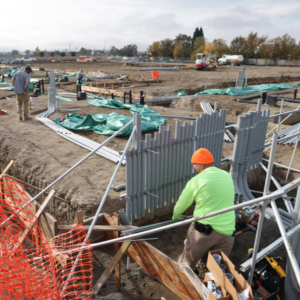
Gray and white flakes of ash from the nearby Glass Fire flutter down as I speak with Gervacio Peña Lopez, the executive director of Movimento Cultural de la Unión Indígena and a Mixteco farm worker. We are wearing masks, sitting six feet across from each other outside the organization’s headquarters in Santa Rosa, CA. Lopez is bemoaning the compounding, paralyzing difficulties that Indigenous farm workers have had to deal with this year. First, the pandemic and the susceptibility to infection, with living and working in crowded spaces and without access to PPE. Second, a fire season that has become synonymous with the grape harvest season, filling the air with toxic ash and smoke. Third, the election. An overwhelming majority of farm workers cannot vote because they are undocumented—yet their wages and protections hang in the balance.
“Our people take a lot of risks because they need to make money, but there’s more competition. People who lost jobs in other industries are coming to work here. Children [of farm workers] are coming to work with their parents because there’s no school and the workers can’t afford childcare. Employers are reducing our hours so they don’t have to pay overtime. So, we are afraid to complain,” says Lopez. California grows two-thirds of the country’s fruit and nuts and one-third of its vegetables. It is where the impacts of the pandemic, the fires, and the looming election have befallen society’s most crucial yet vulnerable: our farm workers.
Continue Reading on Bonappetit

